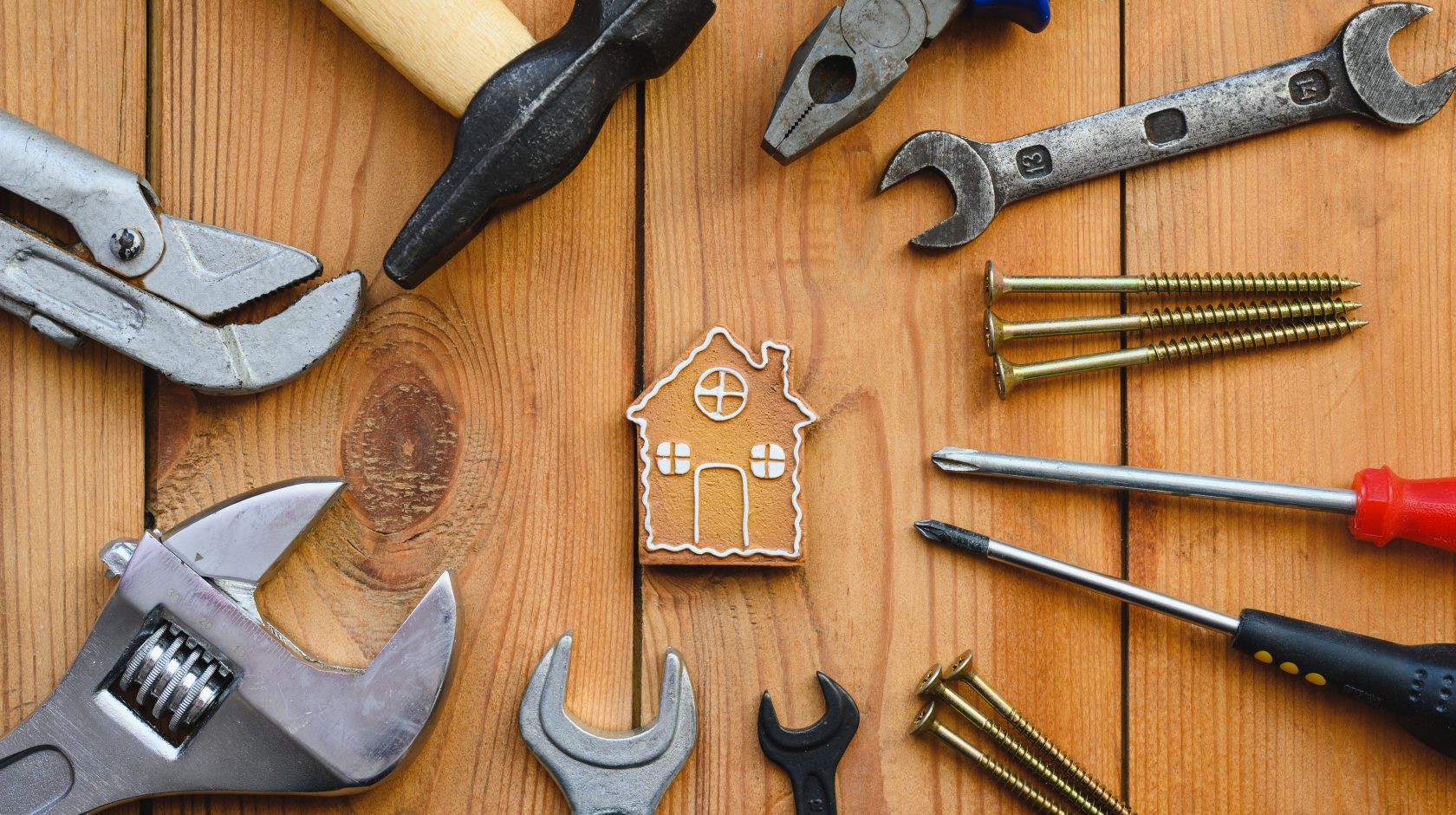Prepare for Supply Chain Issues on Possession Day
You’ve finally done it! In a tight market you’ve managed to find a home that suits your family’s needs perfectly, you’ve submitted the winning offer, and only a few more weeks stand between you and your possession day. Insurance is in place, mortgage paperwork has been signed at your lawyer’s office, the seller seems to be on top of getting the handful of promised repairs done, what could possibly go wrong?
Well, in the COVID-19 pandemic era, we are discovering that there are new sorts of things that can go wrong. Simple commitments made by home sellers during purchase agreement negotiations are, in some cases, turning out to be hard to fulfill. I’ll use a refrigerator as a hypothetical example. Let’s say that during a home inspection it was revealed that the ice maker on the fridge doesn’t work. The seller had been told a year ago that it was just a matter of replacing a five-dollar part, but they got busy with other things, and they never used it anyway, and so the work didn’t get done. The seller has committed to having it repaired prior to your possession day.
What the seller and their Realtor may not have considered is that it can be really hard to get simple work done these days. In some cases local contractors are just too busy, and southern contractors who used to occasionally visit during peak season are no longer making the trip due to COVID restrictions. Also, due to demand, some contractors may have chosen to triage clients – for example, they may have stopped performing repairs on appliances that they didn’t sell in the first place. In some other cases where the pandemic has slowed down demand for certain types of work, contractors may have left the North, or retired early. And then there is the issue of obtaining parts – we’ve encountered situations where a part that used to be readily available now requires a six month wait.
If the seller and the seller’s Realtor did not anticipate theses issues, possession day will arrive and, despite the best intentions of the seller, the work may not have been completed. What happens next was tricky even before the pandemic, but it is far trickier now, and it warrants advanced planning.
When closing day arrives, Realtors are supposed to effectively hand the relay race baton to the real estate lawyers, whose take it from there. But in these cases where work has not been completed or items are not in good working order, prior to sprinting off for the last stage of the relay race, the lawyers for both sides will ask the Realtors what they estimate the cost of having the repair completed might be. If a dollar amount can be agreed upon, those funds will be held back by the lawyers, by means of a “holdback clause” or “holdback agreement,” and will only be released to the sellers once the work has been completed.
Recommending a holdback amount can be problematic for the Realtors, because although it might only be a five-dollar part and a $100 repair bill, in the COVID-19 era there is no guarantee that the work can be done within a reasonable time frame, or at all in some cases. So, increasingly these days, the only safe response from the buyer’s agent is the full replacement cost of the appliance or item in need of repair.
Replacing an entire refrigerator for the lack of a five-dollar part may seem extreme, especially to the seller, but what else is there to be done? The seller agreed that all appliances would be handed over in good working order on possession day, and they didn’t exclude the fridge from this commitment, and that’s pretty much that.
In these situations, the seller, the buyer and their Realtors often disagree on the amount that should be held back, or on what constitutes “good working order.” It is up to the lawyers representing each side to reach an agreement. But what can make matters much worse is that sometimes buyers and sellers choose not to have their own legal representation, and instead share a lawyer. This is what many Realtors refer to as “double-ending.” If there is a disagreement, a lawyer who is double-ending is unable to advocate for one party over the other, which pretty much leaves the seller and buyer to either advocate strongly for their own position, or compromise and meet in the middle. But while compromising might generally be seen as a good thing in society, in these situations where there is usually a clear case of someone being right and someone being wrong, the wronged party should not have to compromise. They should be entitled to what was agreed upon in the purchase agreement.
This is the main reason we strongly recommend that sellers and buyers deny requests by their lawyers to represent both sides (they have to ask you in advance). Allowing your lawyer to represent the other party may seem simpler, and it may even be slightly cheaper, but if things get tricky on possession day, you will regret it.
So, in a world that is likely to be affected by supply chain and labour shortage issues for months to come, what are a buyer and seller to do?
Here are our tips for buyers:
#1 – Have a conversation with your lawyer about holdback clauses and holdback agreements at the earliest opportunity. And let them know that, should one be required, you need it to be in writing and to be detailed. Far too often these things are done informally, which can lead to debates down the road over details such as what constitutes a “reasonable” amount of time to have a repair done, who is qualified to make the repair, how many quotes should be obtained, and what standard of work will be considered acceptable?
#2 – Be prepared to pay for the extra legal fees that may result from negotiating a holdback agreement. While we all want to save money when possible, when it comes to legal fees on a home purchase, cost should not be your main consideration.
#3 – During negotiations, if you agree to allow the seller to have repairs done or work completed, ask your Realtor if they have concerns about the particular type of work and the seller’s ability to get it done. It is your Realtor’s job to stay on top of these things and to know which types of work might be problematic.
#4 – Ask for work to be done by the seller several days or even a week in advance of possession day, and ask your Realtor if they would advise inserting a pre-closing inspection term in your purchase agreement. This basically allows you to see for yourself whether or not work was completed, and if not, it gives your lawyer time to negotiate an appropriate holdback agreement.
#5 – Never buy a home through the listing agent, use your own designated agent (a.k.a. buyer’s agent). All of the warnings we’ve provided about having a lawyer work both sides of a deal go triple for working with Realtors. You need to be sure that, if issues arise, you have someone working to secure the best outcome possible for you. The listing agent cannot legally do that. And using a buyer’s agent costs you nothing.
#6 – Never plan to move into your new home on possession day. Give yourself (and your movers) a cushion of at least a day, just in case issues arise. A smooth move-in inspection can result it keys being handed over by noon, but problems like those described above may delay completion of the transaction until the following day.
And here are our tips for sellers:
#1 – Make sure that everything in your home is in good working order. If something is broken, get it fixed now. Don’t wait.
#2 – If for some reason you can’t have the item repaired, make sure that your Realtor is aware and that he or she lets potential buyers know in advance. And then exclude the item from your promise of “good working order” during offer negotiations. There is a space for these exclusions in the purchase agreement.
#3 – If you were unaware that a “hard-to-repair” item was in need of repair, and therefore you did not exclude it from your good-working-order commitment, then you should be prepared for the buyer’s lawyer to be asking for a holdback agreement on closing day, and for the amount to potentially be as high as full replacement value.
#4 – Don’t agree to let your lawyer, or your lawyer’s firm, represent the buyer. This is a very normal position to take and your lawyer will not take it personally.
#5 – As mentioned in the buyer list above, if you agree to a holdback, make sure that the agreement is in writing and detailed. Don’t just make these arrangements verbally.
#6 – Don’t let your listing agent work with the buyer. As of January 1st of this year the Northwest Territories Association of Realtors has upgraded its forms, and a listing agent now needs your written consent to double-end. Unless you live in a town with only one Realtor, you should never agree to this. Should things go wrong at closing, you need to be sure that your Realtor is advocating in your best interests, not trying to persuade you to compromise.
At Century 21 Prospect Realty our goal is to define and deliver the gold standard in real estate services. Our Realtors are continually training, learning and staying on top of issues that may impact your real estate transaction. If you are thinking of selling or buying a home this year, get in touch with Yellowknife’s best real estate team today.








